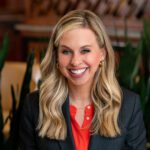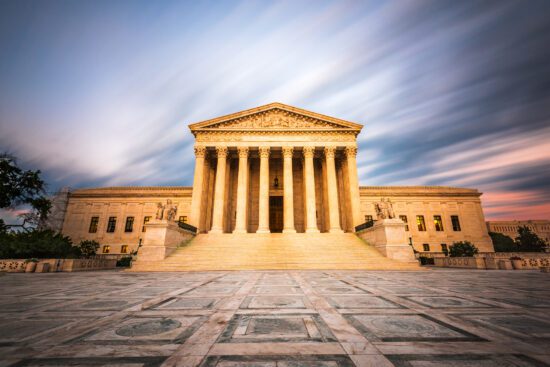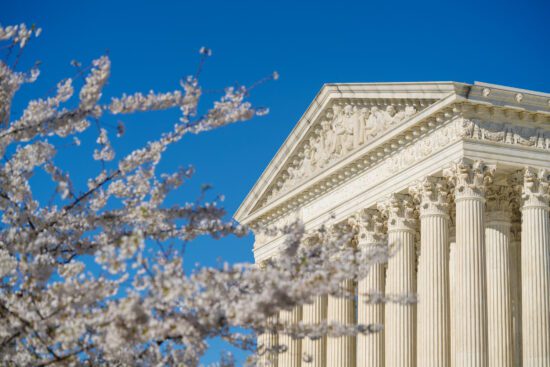Many ministry leaders live at a pace that is impossible to keep. Unrelenting busyness might feel necessary, but it can lead to chronic stress and burnout that hinders our love for God and others. Instead of adding more to our long to-do list, counselors Eliza Huie and Esther Smith seek to guide readers in how to think biblically about every aspect of life in their new book, The Whole Life: 52 Weeks of Biblical Self-Care. Huie and Smith hope to give Christians a framework for biblical self-care to help them live for Christ by stewarding well the spiritual, emotional, relational, and physical areas of life. Below, they discuss and right understanding of self-care and why it can enable us to minister more faithfully.
Jill Waggoner: How is the term “self-care” so often misunderstood in the Christian community? In reality, why is it a biblical concept?
Eliza Huie and Esther Smith: The term “self-care” has been broadly used in secular circles and wellness platforms in various ways. From expressing healthy priorities to using it as means to justify a self-centered and indulgent lifestyle, people’s understanding of what self-care entails differs. More self-centered forms of self-care have likely contributed to concerns that Christians have when they hear the term. However, another contributing factor is likely a wrong understanding that a life of self-sacrifice means you should not care about your own needs. This is not what the Bible teaches nor is it what Jesus modeled.
Self-care is a biblical concept when we consider it in light of three things that are reflected in our definition of biblical self-care. We define biblical self-care as “the practice of drawing on divinely given resources to steward our whole lives for personal enrichment, the good of others, and the glory of God.” Biblical self-care is about stewarding everything God gives us. This includes resources such as our time, energy, health, relationships, skills, and abilities. These things enrich our lives so that we can do good to others and glorify God.
JW: What have you seen in your counseling experience that confirmed the need for this book?
EH & ES: Being in the helping field of work, we were both aware of the high levels of burnout experienced by counselors and caregivers. An article from The American Psychological Association states that 50% of mental health workers report high exhaustion and cynicism. Ministry workers don’t fair much better. One study completed by the Schaeffer Institute indicates that 1,700 pastors leave the ministry each month. These pastors state their primary reasons for leaving is due to experiences of depression, burnout, and overwork. Statistics like these underscore what we know: it is very easy to put the critical needs of others above our own need for rest and refreshment.
We also saw the need for this book in our counseling practice. Whether it was the college student feeling unable to keep up, the homemaker experiencing exhaustion, or the professional burning the candle at both ends, we saw people who had little concept of how to wisely care for themselves. When they did take steps to care for themselves, they often felt guilty about it. In light of all this, we knew a book like The Whole Life was absolutely essential.
JW: Personally, how did you come to realize self-care was a necessity? What are a few of the things each of you do regularly to take care of yourselves?
EH: For me, it is easy to say yes and hard to say no. Much of this, I believe, comes from a good desire to help others as well as having a natural entrepreneurial personality. I love being a part of building something. Whether I’m investing my energies into a project or a person, I jump in with both feet. But this is not without a cost, and I was starting to feel that cost. I began to feel overwhelmed, and stress started to impact my body. In addition, I felt the negative impact of the emotional stress I was carrying in various ways including difficulty sleeping and other health challenges. I started feeling like the act of spinning many plates was normal. As much as I hate to admit it, I did not want to slow down, but I knew a frenetic pace was not healthy physically, emotionally, relationally, or spiritually.
A couple of things I do to care for myself so that I can serve others well are to get up early and read and listen to the Bible. Reading while I listen allows me to really focus on God’s Word. My mind can easily wander, so this is one thing I do to ensure that my time in the Word is not distracted. Undistracted time with God seems to set a tone for the day for me. I also try to spend time in nature as often as I can. I find breathing in the fresh air and noticing the beauty of whatever I happen to encounter on my daily walk revitalizes me. Sometimes my husband joins me on these walks, and we both have found it beneficial to our personal and relational health as it affords us time to slow down together.
ES: Over 10 years ago, my life was interrupted by chronic pain and autoimmune illness. It soon became apparent that I would need to make major life adjustments to manage my symptoms. After years of searching for answers, I was diagnosed with lupus, and since then, I have found it necessary to slow down.
One area of self-care that is especially important for me to regularly practice is a balance between exercise and rest. Most days I find time for gentle exercise. Every day, I make sure I find time to rest my body. This combination of movement and slowing down is essential for my body and mind to function at their best. Another important self-care practice for me is reading. From slowly reading through a devotional to spending the afternoon with a good novel, I find that various types of reading are beneficial for my well-being.
JW: How was The Whole Life written to be used?
EH & ES: The book is divided into 52 short chapters. The chapters cover six essential areas of our lives including faith, health, purpose, community, work, and rest. Taking the time to go deep into each of these areas over the course of a year allows the biblical application of self-care to become embedded into our rhythms and routines. We did not want this book to be read and set aside. We hope people will read it with intention and create space to apply what they learn. While the book is meant to be read and applied alone, it has great potential to be useful in group settings as well.
JW: Stewardship is a word you use often in The Whole Life. Usually, we think of stewardship in reference to how we spend our money, but how does stewardship apply to every part of our lives?
EH & ES: The Bible does not limit stewardship to our finances. We are called to be good stewards of God’s varied graces (1 Pet. 4:10). This includes ourselves, holistically. God gave us bodies that need care. He gave us souls that need attention. He put us in relationships that require time and effort. He designed us to think and feel deeply about our life circumstances, and we must wisely manage our responses to those circumstances. Being good stewards means we are aware of how we are doing in all these areas of life, not only how we spend our money but how we spend our time and energy. Stewardship includes all the various parts of our lives that the Lord has given to us.
JW: Why do some of us feel like we have to keep pushing ourselves, even when we become physically burned out? How have we confused biblical admonitions to justify this behavior?
EH & ES: Pushing through to the point of burnout happens for a variety of reasons. One common reason is that people find themselves stuck in busy schedules and simply aren’t sure how to change. Our culture makes it easy to fall into overwork. To a large degree, peoples’ ability to work and be productive is equated with their value. Working hard makes us feel competent and worthy. At times, we push through out of false guilt, legalistic tendencies, savior complexes, or because we feel uncomfortable at the mere thought of not being productive. When signs of burnout surface, many people push forward because they underestimate the consequences of this choice or because they have never seen a more balanced life modeled to know what it might look like.
The question we need to consider is this. Do we really think working in that way is biblical? Or do we just use that idea as an excuse? The most common Scripture people use to support pushing through to the point of burnout is Jesus’ encouragement to take up our cross and deny ourselves. As Christians we are to live self-sacrificial lives, give to those in need, and not grow weary in doing good works. We use these commands to justify overwork. In reality, these commands can exist alongside our human need for spiritual rest and physical refreshment (1 Kings 19:4-8).
JW: Why is emotional health so often neglected? Why is there such an embarrassment and stigma attached to getting professional help?
EH & ES: Many people neglect emotional health simply because they don’t realize how important it is. Some Christians circles view emotions as dangerous or deceitful experiences that only serve to lead us astray. This fear can prevent people from discovering how important emotions are to our ability to connect with others and navigate struggles. It can also lead people to shut down their emotions or become frightened when they struggle to manage them.
Professional help is stigmatized for a variety of reasons. The inability to handle emotional or mental problems is often associated with feelings of weakness and failure. Many people believe that if someone only prays enough or recites the right Scripture, then problems will be bearable. In this context, needing professional help feels shameful. People feel defeated that their faith was not strong enough to get them through the struggle. However, God never designed us to walk through life alone. He designed us to live in community and to find help and support from others as well as from him and his Word.
JW: How important is community to living an overall healthy life?
EH & ES: It’s hard to overstate how important community is to living a healthy life. Most of us take community for granted and don’t realize its importance until it isn’t available to us. For many people, the importance of community was highlighted as they experienced isolation throughout the pandemic. People saw that the inability to worship in person affects us spiritually. The absence of regular human contact increases depression and anxiety. Loneliness impacts our physical health. Long periods of isolation highlight how much we need community to live a healthy life.
We weren’t created to be alone. On the contrary, we need each other. Conversations, physical contact, and human presence are essential parts of self-care. We need people to mourn with us, rejoice with us, encourage us, and stick with us through the ups and downs of life. Other people are essential to our growth and sanctification. Being in community is not only essential to our relational health, it is also a necessary aspect of our physical, emotional, and spiritual flourishing.
A version of this interview previously appeared at New Growth Press.










